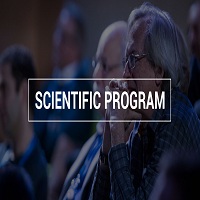
Biography
Biography: Katherine Callaghan
Abstract
Case Presentation: Here we present 5 cases of pediatric and adolescent patients with PWS who exhibited episodic manic or hypomanic symptoms indicative of bipolarity. We subsequently discuss the individual treatment regimens of each patient. Literature Review: Prader-Willi Syndrome (PWS) is a genetic disorder caused by loss of function on chromosome 15 (q11-q13). Baseline behavioral probles such as preoccupation with food or skin picking can make psychiatric diagnoses difficult to recognize in this population,6,8. Obsessive-compulsive tendencies and aggression are well known psychiatric illnesses seen in younger PWS populations4-5,8. Autism spectrum diagnoses have been noted as well9. However, little has been reported on the pediatric and adolescent population regarding bipolarity. In regards to treatment of psychiatric comorbidity, SSRIs have had efficacy in limiting obsessive compulsive and aggressive symptoms in some patients4. For psychotic episodes, atypical antipsychotics have had some success, as well as lithium for cycloid psychosis in adults2. Regardless of diagnosis, psychiatric comorbidity is an atypical feature of PWS10. When it does occur, individualized treatment should be explored to address these issues for optimization of patient health. Clinical Significance: We have shown that bipolarity can be seen in pediatric and adolescent patients with PWS. The use of the antipsychotic Ziprasidone in these patients has helped to prevent further manic episodes. Ziprasidone, a weight neutral atypical, may be a better option than other atypicals when considering hyperphagia in PWS patients.

